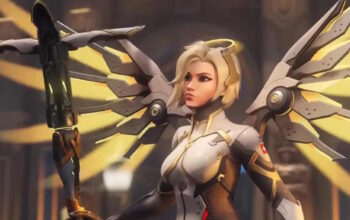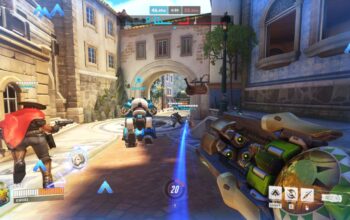In the competitive world of Overwatch 2, the age-old debate between one-tricking heroes and swapping to counter unfavorable matchups continues to ignite passionate discussions within the game’s community. As players strive to climb the ranks and secure victories, the question remains: is it better to specialize in a single hero or adapt to the ever-changing battlefield?
One-tricking, the practice of dedicating oneself to mastering a single hero, has its merits. By focusing on a specific character, players can develop an intimate understanding of their abilities, strengths, and weaknesses. This expertise allows them to push the boundaries of their chosen hero, executing intricate strategies and outplaying opponents through sheer skill and knowledge. However, the downside of one-tricking becomes apparent when faced with hard counters or unfavorable team compositions.
On the other hand, the ability to swap heroes mid-game is a fundamental aspect of Overwatch 2’s dynamic gameplay. When a player finds themselves consistently outmatched or countered, switching to a more suitable hero can turn the tide of battle. Adaptability is key in a game where team synergy and counterpicking play crucial roles in securing victory. By having a diverse hero pool and the willingness to switch when necessary, players can contribute to their team’s success and overcome challenging situations.
The recent discussion on the game’s community highlights the frustration felt by many players when one-tricks refuse to swap despite being hard-countered or significantly outplayed. The original poster expresses their exasperation, stating that they have lost over 100 matches due to teammates who prioritize their ego over the team’s success. This sentiment resonates with many players who have experienced similar situations, where a teammate’s unwillingness to adapt hinders the entire team’s performance.

While it is understandable that players may have a strong attachment to their main hero, it is essential to recognize that Overwatch 2 is a team game. The actions of one player can have a profound impact on the entire team’s chances of victory. When a player consistently underperforms or refuses to adapt to the situation at hand, it can be seen as a form of griefing, negatively affecting the experience of their teammates.
To foster a positive and competitive environment, it is crucial for players to strike a balance between specialization and adaptability. Mastering a hero is commendable, but being open to switching when the situation demands it demonstrates a player’s commitment to the team’s success. By having a diverse hero pool and the willingness to adapt, players can contribute to the team’s overall strategy and increase their chances of winning.
Furthermore, effective communication and a positive attitude are essential in navigating these situations. Instead of resorting to blame or toxicity, players should approach their teammates with understanding and encouragement. Discussing potential hero swaps or strategies in a constructive manner can lead to better teamwork and improved performance. If you’re having problems with bad and toxic teammates, you might consider a PRO Duo Carry to party with you. You get a friendly teammate who will also win you the game, so that is a win win!

In final words, while one-tricking can lead to exceptional skill and mastery of a specific hero, the ability to adapt and swap when necessary is equally important in Overwatch 2. Players should strive to find a balance between specialization and flexibility, prioritizing the team’s success over personal preferences. By fostering a culture of adaptability, communication, and teamwork, the Overwatch 2 community can create a more enjoyable and competitive experience for all players, regardless of their chosen playstyle.



